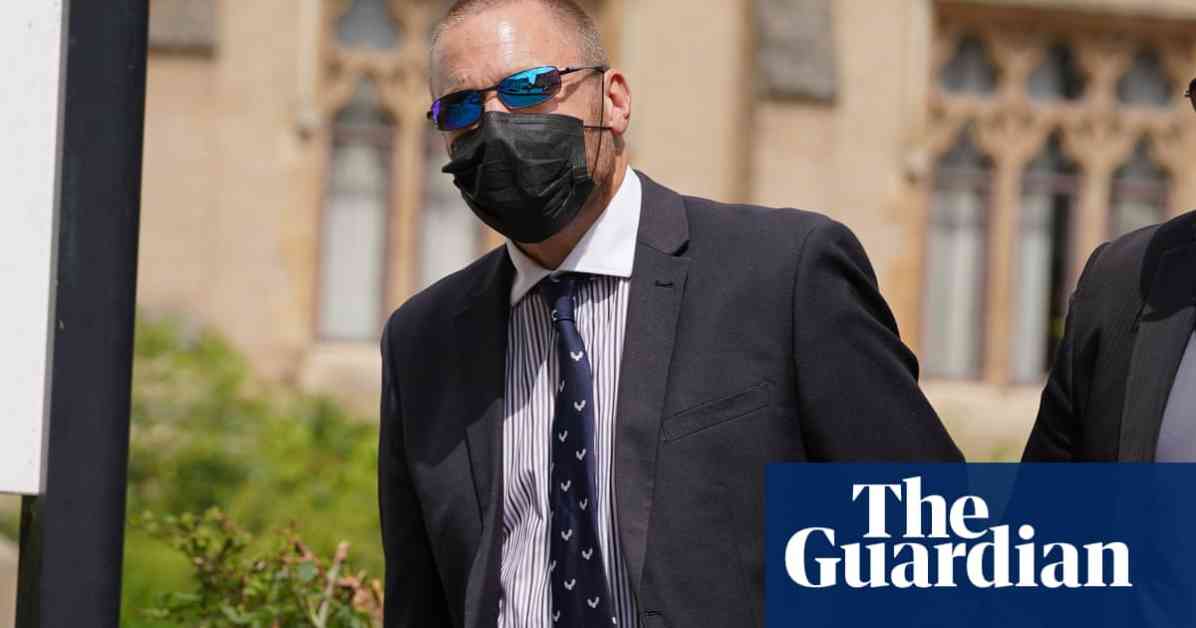Former Metropolitan police officer Craig Carter was sentenced to 16 months in jail after pleading guilty to stealing money from the late Italian film-maker Claudio Gaetani. The incident occurred between September 7th and 14th, 2022, when Gaetani tragically collapsed and died on a London street. Carter, who hails from Harlow, Essex, took advantage of the situation by pocketing approximately £115 from the deceased man.
Carter’s actions have sparked outrage and disbelief among the public, as he was supposed to uphold the law and protect citizens, not exploit them. The betrayal of trust is particularly egregious given his background as a former police officer. The fact that he targeted someone who had just passed away adds another layer of callousness to his crime.
The theft from Gaetani’s lifeless body raises questions about Carter’s moral compass and integrity, or lack thereof. It is a stark reminder that corruption and dishonesty can infiltrate even the most seemingly trustworthy institutions and individuals. The justice system’s swift response in sentencing Carter to jail sends a clear message that such behavior will not be tolerated or excused.
The Impact on Gaetani’s Family and Friends
The theft of £115 may seem like a relatively small amount in the grand scheme of things, but the emotional impact it has had on Gaetani’s loved ones is immeasurable. To have someone desecrate the memory of their deceased family member in such a manner is beyond comprehension. Gaetani’s family and friends are left grappling with a mix of grief and anger at the violation of his dignity and the lack of respect shown towards his memory.
One can only imagine the pain and heartache they must be experiencing, knowing that someone took advantage of their loss for personal gain. The emotional toll of such a betrayal can be long-lasting and profound, leaving scars that may never fully heal. It is a cruel twist of fate that in their time of mourning, they must also contend with the fallout of Carter’s actions.
The Ethical Responsibilities of Law Enforcement
As a former Metropolitan police officer, Carter was entrusted with upholding the law and protecting the public. His betrayal of that trust not only reflects poorly on him as an individual but also raises broader questions about the ethical responsibilities of those in positions of authority. The very notion of justice and fairness is called into question when those who are supposed to enforce it are themselves engaging in criminal behavior.
Law enforcement officers are held to a higher standard precisely because of the power and authority vested in them. When that trust is violated, it undermines the very fabric of society and erodes the public’s confidence in the institutions meant to serve and protect them. Carter’s actions serve as a stark reminder that accountability and integrity are non-negotiable requirements for those tasked with enforcing the law.
The Judicial Response and Accountability
The sentencing of Craig Carter to 16 months in jail for his theft from Claudio Gaetani is a step towards accountability and justice. It demonstrates that no one is above the law, regardless of their position or background. The swift and decisive action taken by the court sends a clear message that criminal behavior will not be tolerated, especially when it involves exploiting vulnerable individuals.
However, the case also highlights the need for greater oversight and accountability within law enforcement agencies. The fact that Carter was able to commit this crime while serving as a police officer raises concerns about the effectiveness of internal checks and balances. It is imperative that steps be taken to prevent such incidents from occurring in the future and to ensure that those who betray the public’s trust are held accountable for their actions.
In conclusion, the sentencing of Craig Carter for stealing from the deceased Claudio Gaetani serves as a reminder of the importance of integrity and accountability in law enforcement. It underscores the need for ethical conduct and upholding the principles of justice, even in the face of temptation or personal gain. The case serves as a cautionary tale about the consequences of betraying the public trust and the repercussions that follow such actions.












